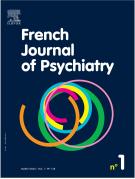Anorexic symptoms and experience of cultural mixing during adolescence: A qualitative study - 23/01/21
 , Rahmeth Radjack a, c, d, Alice Titia Rizzi a, c, d, Marie Rose Moro a, c, d, Corinne Blanchet a, c, d
, Rahmeth Radjack a, c, d, Alice Titia Rizzi a, c, d, Marie Rose Moro a, c, d, Corinne Blanchet a, c, dHighlights |
• | Anorectic symptoms create a feeling of exclusion from the familial cultural environment. |
• | Medical rephrasing limits cultural misunderstanding in migrant families. |
• | Cultural blending represents an additional complexity level in identity construction. |
• | Transdisciplinary care should integrate cultural formulation to favor therapeutic alliance. |
Summary |
Objective |
The prevalence of anorexia nervosa (AN) increased in Western societies during the second part of the 20th Century, mostly affecting females during adolescence. Cultural considerations were frequently associated to anorectic figures but as geographical prevalence variability evolves, we must adjust our vision of the links between AN and cultural environment. This qualitative study wishes to explore the anorectic experience of adolescents with mixed cultural backgrounds and the influence of the transcultural context.
Methods |
Semi-structured interviews were performed with 14 to 20-years old female adolescents with a diagnosis of AN. We used the Interpretative Phenomenological Analysis to explore the collected data.
Results |
Six participants were included, none were born abroad, but had one or both parent born abroad. Three super-ordinate themes emerged. Adolescents reported difficulties integrating a culturally mixed identity. The diagnosis of AN itself carried a strong western identity. The transmission of cultural heritage is widely mediated through traditional food in migrant families and food refusal could worsen family distancing. Participants reported a feeling of exclusion from their siblings. Care could appear as incompatible with the parental cultural environment. However, medical rephrasing usually helped to reduce misunderstanding and recreate family communication.
Discussion |
The impact of cultural environment goes beyond the onset of AN modifying anorectic experience for adolescent patients in culturally mixed environment, in early access as well as progress of multidisciplinary care. Integrating this aspect to specialized care could help us acknowledge families’ interpretations of the disease, help patients and families share common representations and favor alliance.
Le texte complet de cet article est disponible en PDF.Keywords : Anorexia nervosa, Adolescence, Interpretative phenomenological analysis, Transcultural psychiatry, Transdisciplinarity
Plan
Bienvenue sur EM-consulte, la référence des professionnels de santé.
L’accès au texte intégral de cet article nécessite un abonnement.
Déjà abonné à cette revue ?

